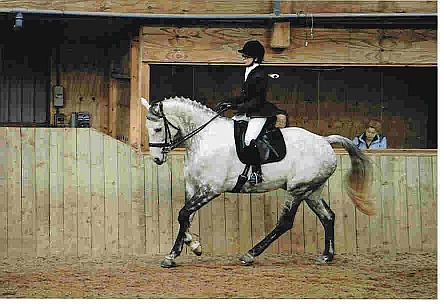Nafsika has held posts as
Lecturer in Ethics at the Centre for Professional Ethics at Keele University and Lecturer in Philosophy at the
University of Leeds. While at Leeds she was a senior member in the successful
IDEA CETL bid and author of the online teaching resource “An Introduction to
Teaching Ethics”. She did her PhD on the problem of moral luck at the University
of Reading under the supervision of John Cottingham and Jonathan Dancy,
having been awarded an AHRC Partnership grant. Nafsika works primarily in moral theory and applied philosophy. Her PhD examined the problem of moral luck and used the questions raised by the paradox of luck to examine how different moral theories, and in particular virtue ethics and Kantianism, account for moral responsibility. The ideas from that work were further developed and eventually resulted in her monograph Morality, Moral Luck and Responsibility: Fortune’s Web (Palgrave, 2005). Her interest in the problem of moral luck has widened into a broader concern with how we make decisions under uncertainty and with her colleague Allison Ross, she has published four papers on how we make decisions about risk from a virtue ethical perspective (2009 Science and Engineering Ethics, 2010 Journal of Risk Research, 2012 in Reconceiving Medical Ethics and 2014 HEC Forum). Allison and Nafsika are currently working on a book on Risk and Virtue Ethics. Nafsika is also working on a paper giving an Aristotelian account of hope, which is part of the broader theme of making decisions under conditions of uncertainty. Nafsika is also particularly interested in inter-disciplinary
research and has previously published on the interplay between virtue ethics
and personality psychology (2000 Proceedings of the Aristotelian Society, 2015 in From Psychology to Virtue),
as well as having interests in a broad range of applied topics, including the
role of consent in sado-masochistic practices
(2002, Res Publica), active euthanasia
amongst neonates (2005, in Philosophical Reflections in Medical Ethics),
unusual patient requests (2006, Journal of Value Inquiry), and
deception in medical research (2009, Clinical Ethics). She is the
editor of Philosophical Reflections
on Medical Ethics
(2005, Palgrave), described by a reviewer as “a provocative collection
of compelling essays devoted to the most controversial topics in contemporary
bioethics” (Notre Dame Philosophical Reviews). She
also has a strong interest in education, particularly the teaching of ethics
to non-philosophy students (2007, in Principles of Health Care Ethics),
the theory of Aristotelian education (2013 in The Handbook of Virtue Ethics and forthcoming in The Handbook of Virtue) as well as
practical pedagogy. She has developed a website with practical ideas for
teaching ethics, www.teachingethics.org.uk. Nafsika is very proud to have
edited, along with Sam Vice, a festschrift for John Cottingham, The Moral Life: Essays in
Honour of John Cottingham (2008, Palgrave). The
volume brings together friends, colleagues and
former students of Cottingham, to discuss major themes of his work on moral
philosophy. Presented in three parts the collection focuses on the debate on
partiality, impartiality and character; the role of emotions and reason in
the good life; the meaning of a worthwhile life and the place of theistic
considerations in it. The original contributions to this volume celebrate
Cottingham’s work by embracing and furthering his arguments and, at times, in
the best spirit of philosophical engagement, challenging and confronting
them. The volume concludes with Cottingham’s specially commissioned responses
to the contributions. Her latest book, Virtue Ethics (2013, Bloomsbury), presents a critical account of
the revival of interest in virtue ethics, including current developments in
moral education, the interplay between virtue ethics and personality
psychology as well as the Kantian response to the increased focus on ‘virtue’
and ‘character’. The book is described by John Cottingham as “[a] beautifully
lucid and engaging book, highly informative, philosophically insightful, and
enlivened by a host of vivid and compelling examples.” For copies of most works see here. Books:
Edited Collections:
Articles:
Contributions to Collections:
Review Articles:
Book Reviews:
On
teaching:
Newspaper and magazine articles and interviews: ·
“The
good, the bad and the lucky”, The Philosopher’s Magazine, 55(4), 2011 ·
“Euthanasia:
Not just a matter of faith”, The Journal, 23 February 2009, issue 19
Professional
Activities Nafsika has reviewed papers for,
amongst others, the Philosophical Quarterly, the Journal of Applied
Philosophy, Ethical Theory and Moral Practice, Ratio, the British
Journal for the Philosophy of Science, and reviewed books for Oxford
University Press, Cambridge University Press and Palgrave. She was
Secretary of the British Society for Ethical Theory. She has acted as
External Assessor for Manchester University and the Open University and she
was External Examiner for a course at the Open University. Research Funding
Nafsika has taught philosophy to students from all backgrounds.
She has taught philosophy students at undergraduate and postgraduate levels,
including doctoral candidates. While at Leeds she led the team that developed
the Ethics Theme in the Medical School, which constituted the case for
excellence for the successful IDEA CETL £2.4 million bid on the
inter-disciplinary teaching of ethics. She developed the “Introduction to Ethical
Thinking”
a flexible and customizable resource which provides tutors new to teaching or
new to teaching ethics with all the materials to run a 10 session course in
ethics, including extensive Tutor and Student Notes and you can find over
100,000 words of teaching ideas on moral theory and practical ethics at her
website www.teachingethics,org.uk. At
Keele she taught on PEAK’s six MA programs on
professional ethics and was the Director of the MA in the Ethics of Cancer
and Palliative Care and the Co-Ordinator of the Professional Doctorate in
Medical Ethics. She supervised four Professional Doctorate students working
various topics including, a critique of feminist concepts of relational
autonomy, a critique of Pellegrino’s essentialist account of medicine, a
critique of the permissibility of carrying out research on full facial
transplants and an application of particularism to medicine. As part of her
work at Keele she run training days for NHS
Research Ethics Committee members and University Research Ethics Committee
members. Nafsika has a particular interest in curriculum design and has been
involved in integrating ethics teaching in medicine, biosciences, pharmacy,
law, business and engineering. She is also interested in practical pedagogy,
including how to teach in an engaging and lively manner, how to introduce
philosophy to non-philosophy students, how to teach with colleagues from
other disciplines, etc. For more information on all this see www.teachingethics.org.uk.
|
|





